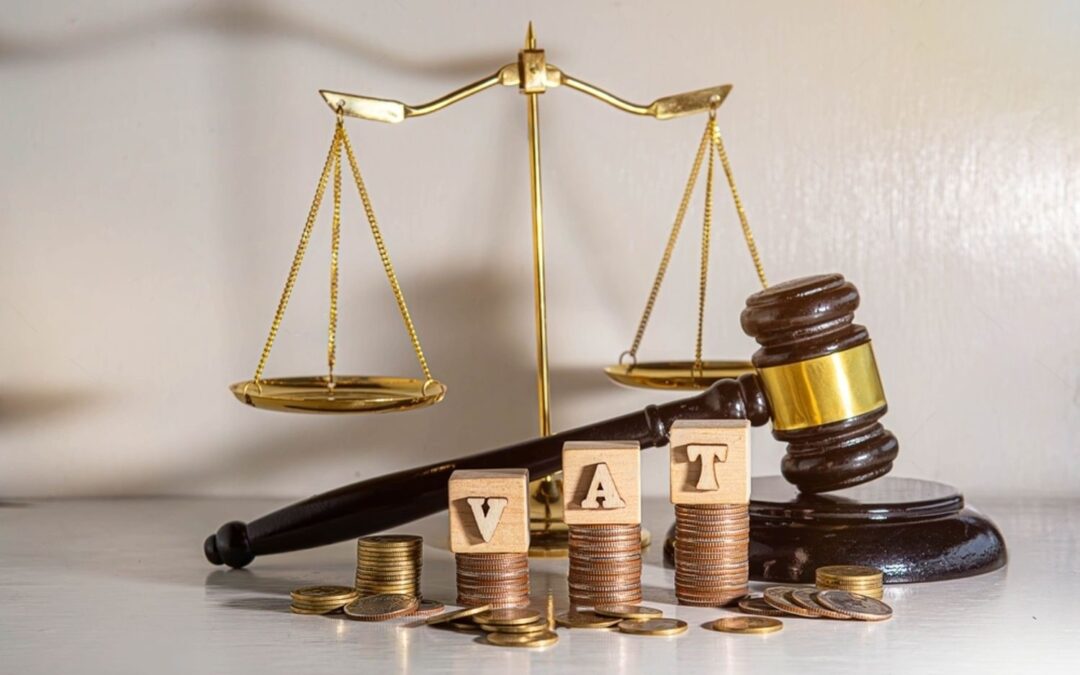The government imposes VAT as an indirect tax on the supply of goods and services, charging it at each stage of the supply chain. Registered taxpayers collect the tax on behalf of the government, while the end consumer ultimately bears the VAT. Khairallah Law Firm provides expert guidance on UAE VAT law to ensure compliance and smooth operation within this framework.
Read More About: VAT advisory

uae vat law
Why Was VAT Introduced in the UAE?
The UAE government already delivers excellent public services, including education, healthcare, social services, and public transportation. By introducing the UAE VAT law, the government diversifies its income sources. This significant revenue stream also ensures the continuation of the high standard of living in the UAE.
What Is the VAT Rate in the UAE?
The FTA announced a standard VAT rate of 5%. However, the FTA also categorized certain goods and services under zero-rated supply and exempt supplies, where no tax is charged, according to UAE tax law.
How Does VAT Work in the UAE under UAE VAT Law?
A manufacturer produces a mobile phone and sells it to a wholesaler. The wholesaler then adds a profit margin and sells it to a retailer. Finally, the retailer increases the selling price further to include their profit and sells it to the end consumer. It’s important to note that the FTA applies a VAT rate of 5% on the sale of goods and services in the UAE.
VAT Registration Process under UAE VAT Law
Under VAT UAE law, businesses must obtain VAT registration mandatorily if their total value of taxable supplies and imports in a year exceeds AED 375,000. Additionally, businesses can voluntarily register if their total value of supplies, imports, or expenditures in a year exceeds AED 187,500.
Businesses in the UAE can initiate the VAT registration process through the FTA’s website.
Categories of Supplies under UAE VAT Law
Different supplies are subject to rates under UAE VAT law and the classification of goods or services is accordingly determined.
- Standard-rated supplies: If your goods or services are in this category, the VAT rate is at 5%.
- Zero-rated supplies: These are essentially those on which a VAT rate of 0% is chargeable and the taxpayer can claim input tax incurred thereon This includes but is not limited to exempting education services, some healthcare supplies, goods and services that are exported outside the GCC zone as well as precious metals like gold & silver along with international transport.
- Exempt supplies: These are services or products that have VAT exemption as per UAE legislation, thus these transactions neither can charge (output tax) nor avail input credit. The input tax is unrecoverable on sale or supply-exempt supplies. Exempt Supplies such as Residential properties Undeveloped land Public transport services Life insurance.
- Deemed supplies: Although not traditionally defined as supplies, businesses must charge VAT on these transactions. Examples include the sale of business assets without consideration, the transfer of business assets between UAE and other GCC Implementing States, and goods used for non-business purposes on which input tax is claimed.
- Out-of-scope supplies: These supplies fall outside the scope of UAE VAT law as defined by the FTA.
Learn More About: vat on commercial property in uae

uae vat law
Input Tax in UAE VAT
Input tax refers to the VAT paid or due on the supply of goods or services, or during an import. Businesses in the UAE must retain invoices and import documents to claim the input tax paid on their purchases.
VAT Returns Process in UAE
VAT-registered businesses must submit their VAT return and pay their VAT liability to the FTA every quarter. Registered taxpayers must complete VAT return filing and VAT payment by the 28th day following the end of the quarter. However, the FTA may assign a different tax period to certain groups of taxable persons.
Read More About: vat return user guide
Penalties for VAT Offenses under UAE VAT Law
The FTA has the authority to impose penalties and fines on taxpayers for any violations of VAT law or rules. The penalties for violating UAE VAT law and tax evasion in UAE are listed in Federal Law No. (7) of 2017 on Tax Procedures.
Conclusion
The UAE VAT law applies a standard 5% rate of tax on goods and services supplied by the taxable person during all stages of supply. Spread government revenue to help fund public services. VAT Registration, supplying under different categories, and also deadlines for filling as well filing. Penalties under Federal Law No. (7) of 2017 if non-compliance Khairallah Law Firm can help your company remain compliant and effectively navigate complex VAT rules.
You can benefit from the free consultation for 30-min, and get the help you need from the best lawyers in Dubai, whether you’re in the region or not!



